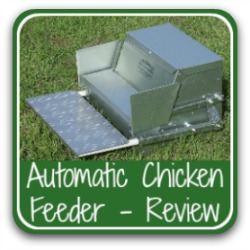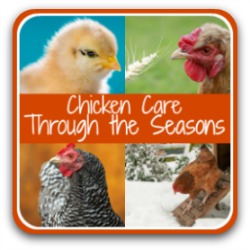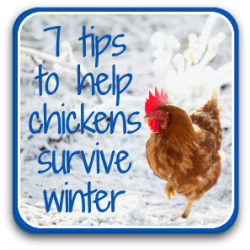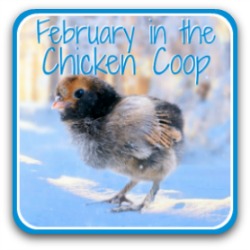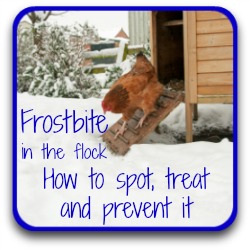Do possums eat chickens?
Possums: are they a friend or foe of the chicken coop?,,,,
Cute face, slow mover, amazing tree climber, a tail that can hold on to branches, a solitary animal who often plays dead to avoid confrontation...
But do possums eat chickens?
You'll find different opinions on different websites. The purpose of this article is to balance those views, come to an informed conclusion, and detail what you can do to protect your flock should you live in an area where possums are common.
First, though, some basic information.
Possum vs Opossum: what's the difference?
In terms of the American species, there's no difference between possums and opossums. It's the same animal: Didelphis Virginiana, the Virginia or North American possum.
'Opossum' is its technical or scientific name; it's simply been shortened to 'possum' in general, colloquial use.
Don't confuse it, though, with the Australian possum, whose family name is Phalangeriformes. The possum we're dealing with here lives only in Central and North America, and Canada.
How to use this page.
This is a long, detailed article. If you think you might have possums and want to know how to spot them and whether they're a danger to your chickens, use these links to jump to the section you want to access quickly.
Or take time to read through all the information for the best experience.
How do you know if you have possums?
It's easy to identify a possum living near your chickens: by sight, footprints, poop (scat) and sound.
What do possums look like?
There's no mistaking a possum.
About the size of a house cat, the possum has a very distinctive face with a long snout, a pointed, pink nose, and black eyes and ears.

They tend to move slowly, are active only for around four hours in any 24, and are most active at night. They live quite solitary lives, preferring dark, secure areas – although they will take up residence in urban developments if there's an easy source of food and water nearby.
Possum tracks.
Apart from catching sight of them, looking for tracks is the easiest way to know whether you have possums.
Possum tracks are very unusual, looking more like a human handprint than an animal – although they do have claws on all but the two hind feet "thumbs".

That thumb is opposable, which means its print is generally at an angle of 90º to the other fingers.
It also means the possum is able to easily and firmly grasp different shaped objects, helping it to climb trees quickly.
Droppings.
Possum droppings aren't particularly distinctive – they generally look like dog poop. Look for a diameter of about 3/4" with a tapered end(2).
 Image courtesy of Wildlife Removal
Image courtesy of Wildlife RemovalAs with any animal faeces, possum droppings can carry disease, so if you come across it handle with gloves and care.
Possum sounds.
You're unlikely to be able to tell if there are possums in your area by sound alone since, unlike most other predators, they are almost always silent(2).
There are a couple of exceptions:
Possums make a clicking noise both to attract a partner and to call to their young...
...and you'll hear a very distinctive hissing or snarling sound if they feel threatened...
Where do possums live?
Where are you likely to find opossums?
The type of possum we're talking about – Didelphis Virginiana – is only found in north, central and south America. So if you live anywhere else, you can rest easy.
Their sharp claws, opposable thumbs and prehensile tail makes them excellent tree climbers, which means that naturally speaking, their preferred habitat is forests or woodland areas.
But possums will go wherever there's easy food, which means they have adapted to urban life as well and can be found in ready-made homes such as outhouses, barns, in the space under houses – even attics if they find an abandoned house they can colonise.
So don't assume that because you live in the city you'll never have to worry about possums and your chickens.
 A possum baby learning to use his prehensile tail.
A possum baby learning to use his prehensile tail.Are possums aggressive?
Generally speaking, possums prefer to avoid confrontation. They're naturally placid, shy animals who will do anything for a quiet life.
Famously, when they feel threatened or are afraid in any way, they'll usually "play possum" rather than fight(4).
What does "play possum" mean?
It's a bit like fainting – an involuntary, shock-like response, not a conscious reaction(4). It happens when the possum is frightened and can't see any other way of escape.
The possum will remain unconscious and completely still. It becomes so stiff that it can be prodded and turned over without reacting.
Its eyes will close, its lips will be drawn back and the teeth look as though they're being bared.
 A possum playing dead.
A possum playing dead.So in general terms possums are not, normally, aggressive animals.
But what about possum vs chicken?
Do possums eat chickens?
What do possums eat normally?
Possums are naturally fairly lazy animals, and opportunistic scavengers as far as food is concerned. So, for example, they'll feed on roadkill and other dead animals and birds they find lying around(4).
They will also take the opportunity to feast on discarded human and pet food, unprotected grain, fallen fruit and plants.
As they have become more used to living in urban areas, they're particularly attracted by rubbish bins – which their opposable thumbs make light work of – wild bird feeders, and eggs left uncollected.
Occasionally, if they come across them, they'll be attracted by the presence of small chicks, and if they find an adult chicken already dead, they won't miss that opportunity either.
But generally, they're not known to attack larger, live prey.
But will a possum kill chickens?
You'll find different views about this depending on who and what you read. Most agree that their personality is not generally aggressive and that they will generally look for an easier way of finding food(e.g. 4, 5, 6).
But, like all creatures, if food is scarce – particularly if they have young ones to feed – a possum will kill a chicken. It's rare, but it's certainly not unknown.
 A possum's teeth can kill in extreme circumstances.
A possum's teeth can kill in extreme circumstances.How to tell if a possum has killed your chickens.
- Usually only one chicken will be killed per visit
- There will be deep marks on the head and neck, and...
- ...Bites in the breast, neck and thighs
- The abdomen will be completely eaten.
How to keep possums away from the chicken coop.
It's important to start by saying that killing possums is both inhumane and potentially illegal. It's also illegal in some states to relocate them.
They play a role in sustaining the environment – and there are better ways of living in harmony with wild animals.
The key to keeping possums away from your flock is to base security on what we already know about the possum's characteristics and behaviours.
1. Keep your chickens locked up at night.
Possums are nocturnal animals, preferring to stay hidden during the day and come out to find food at night.

- So make sure all your chickens are safely locked up in their coop before dusk until early morning.
- Don't rely on the run alone being locked – remember, possums are excellent climbers. Close and lock the coop door.
- Coops like the Eglu are constructed with interlocking panels and door, so making them impenetrable even to the most accomplished predator. Possums are likely to give up without really trying.
2. Make sure your coop and run are secure.
If desperate, it's known for possums to venture out looking for food during daylight hours. So make sure your chickens' home is safe.
- Maintain locks and latches – remember those opposable thumbs can manipulate.
- Check your fencing and coop for holes regularly, and patch any gaps immediately.
 Make sure to plug any gaps in your coop and run.
Make sure to plug any gaps in your coop and run.- Create an 'L'-shaped apron around the run to prevent digging. See this article about fencing the chicken run for details.
- Electric fencing is also a possibility, particularly if you also have other climbing predators such as foxes and raccoons.
3. Keep food secure.
We know possums are attracted by food left lying around. So make sure it isn't.
- Keep grain in a rodent-proof container. See my review of the best automatic feeder on the market.
- Never leave pet food outside at night. Take up the bowls as soon as your pets have eaten.
- Collect eggs regularly. Don't leave them in nest boxes or around the run.
- Gather windfalls rather than leaving them on the ground to rot.
- Keep wild bird feeders away from the chicken run.
4. Use the possum's shyness.
We know that possums are more likely to avoid confrontation than become aggressive. So make your chickens' area a deterrent.
- At night, leave sensor lights triggered by movement on around the coop.
- Even decorative lights, such as Christmas lights, have been shown to be effective in deterring possums(7).
- Some people leave radios on during the day, since possums are also discouraged by noise, particularly if they think it means there are humans around.
5. Be aware of seasons.
 Possums are more likely to be searching for food in winter.
Possums are more likely to be searching for food in winter.Remember that possums are unlikely to kill live, healthy adult chickens unless they're desperate. Be aware of the time possums are likely to become more daring and determined.
- As for all predators, winter is a particularly difficult time due to the lack of available food.
- Possums have litters of up to twenty young. Most are born between February and June, so be particularly vigilant during those months when they may be looking for an easy meal for their family.
Are there any benefits of possums?
Not everyone views possums as a problem – with good reason. Possums...
- keep rats and mice controlled
- will eat snakes – possums are resistant to snake venom(8)
- maintain healthy plants and vegetables by eating slugs, snails and fallen fruit.
- And most of all, because of their relationship to ticks.
Do possums eat ticks?
Not only do they – ticks are a particular favourite of the possum.
- A study in 2009 showed that the Didelphis Virginiana was able to eat thousands of ticks per week.
- Evidence suggests they will eat about 95% of ticks in their area, wherever they are living(8).
- Which, of course, reduces the potential for Lyme Disease, which is carried by ticks.
So, as long as you keep your chickens safe from any possums looking for an easy meal, you might want to consider making them your friend!
 How cute is this baby possum?!
How cute is this baby possum?!Become a Poultry Predator Detective!
If you have chickens, the likelihood is they will attract predators. After all, chicken is sadly on almost everybody's lunch menu.
Being able to assess which predator(s) you have is the key to keeping your chickens safe.
Gail Damerow's fascinating book, "What's Killing My Chickens?" does exactly that.

In easy-to-understand words, photos and silhouettes (so useful for identifying birds of prey), she helps us to piece together the clues we can find all around our coop and our land.
And, having decided which predators you have, she then describes their behaviour so that we know how best to protect our flock.
Other articles you may find useful.
Sources.
A lot of "facts" you'll find on the internet are often people's individual views, based on inaccurate information repeated from poor quality sources.
The information I provide in this article and others is based not just on my own experience, but on evidenced facts from scientific, peer-reviewed research and books from highly respected and experienced poultry keepers such as Gail Damerow.
Some of the trusted sources I have used in this article are these.
1. Massachusetts Society for the Prevention of Cruelty to Animals: About Opossums.
2. Opossum Poop. Pub. Wildlife Removal, 2023.
3. Ravizza, R. J., and Masterton, B: Contribution of neocortex to sound localization in opossum (Didelphis virginiana). Pub. Journal of Neurophysiology, 1972.
4. What do possums eat? Facts about their diet. Pub. Terminix, 2020.
5. Krause, William J.; Krause, Winifred A.: The Opossum: Its Amazing Story. Pub. Department of Pathology and Anatomical Sciences, School of Medicine, University of Missouri, 2006.
6. Damerow, Gail: What's Killing My Chickens? Pub. Storey,
7. Zook, Dana: Protecting Small Poultry Flocks from Predators. Pub. Oklahoma State University, 2020.
8. Kirchner, J: Opossums: Unsung Heroes in the Fight Against Ticks and Lyme Disease. Pub. National Wildlife Federation, 2017.



